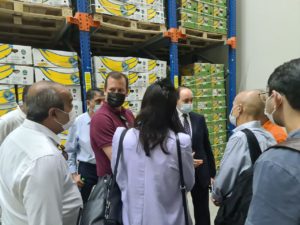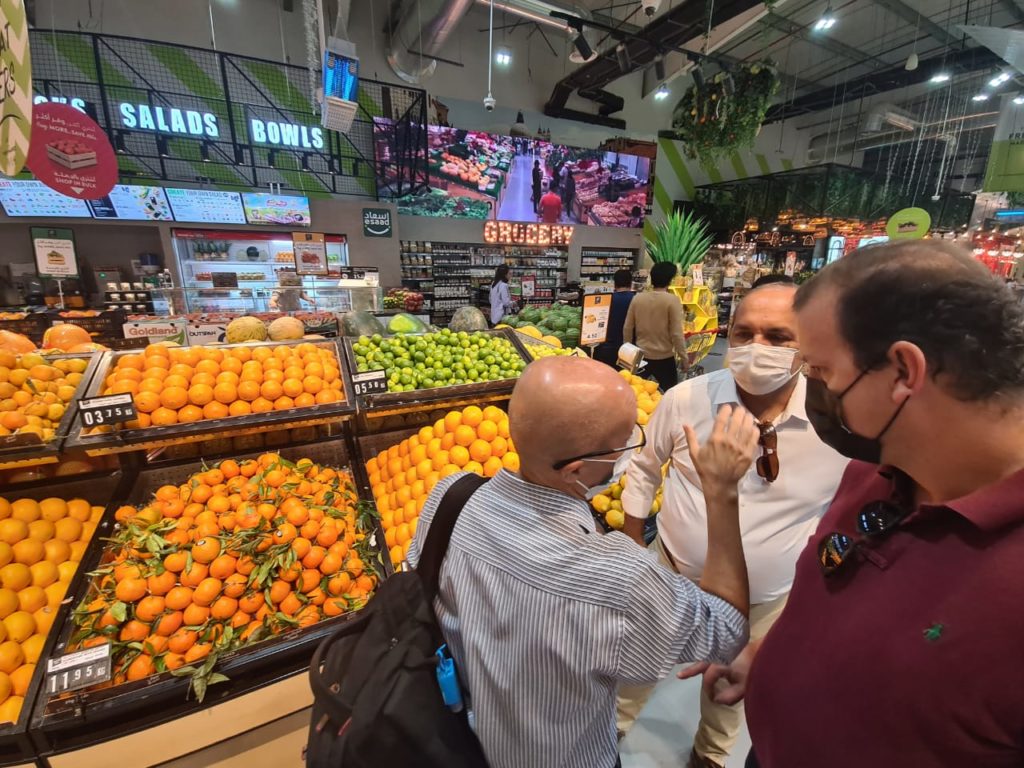São Paulo – The Brazilian fruit industry delegation that is on a trade mission to the United Arab Emirates this week has found a significant demand for the product in the country. “Even though the market is quite segmented according to socioeconomic income levels, they all seem to enjoy the tropical fruits Brazil grows,” Brazilian Association of Exporting Producers of Fruits and Derivatives (Abrafrutas) Project manager Jorge de Souza, who’s in the UAE, told ANBA.

The activities of the mission started last Monday (22) and runs through Saturday (27). Abrafrutas hold the initiative together with the Brazilian Trade and Investment Promotion Agency (Apex-Brasil) as part of the industry’s internationalization project Frutas do Brasil, with the support of the Arab Brazilian Chamber of Commerce (ABCC). After two days of activities, Souza believes there’s room in the market. “There’s demand,” he says.
The trip aims to seek out new international markets for fruits from Brazil, thus reducing the dependence on exports to the European Union, the United Kingdom and the United States. “These three destinations account for over 75% of our exports, so developing new markets is crucial for the industry as this concentration runs too great a market risk,” Jorge de Souza says.
The Middle East was chosen for its climate conductive to fruit consumption and its low share in exports from Brazil at around 2%. “The goal is getting closer to importers, better understanding competitive relations, who is our main competitions, seeking out cost-reducing logistics solutions, and most importantly understand what the Arab client prefers when it comes to quality, fruit size, flavor, cultivars,” the manager says.

The activities of the mission opened with a meeting in the ABCC office in Dubai, where Brazilians were introduced to buyers of supermarket chains, fruit processing and reexporting companies, freight airlines, and other players like UAE-based Tradeling, a digital B2B commerce company, and law firm Baker McKenzie. The Brazilians listened to an explanation on the Arab markets, the Gulf and the UAE, halal certification, and other topics.
ABCC Dubai office head Rafael Solimeo said the Arab buyers praised fruits from Brazil, especially for their colors, flavors and competitiveness, but they said the logistics is a barrier for imports. Solimeo explained this subject has been worked on and will be deepened to make it easier to export fruits from Brazil to the Middle East, particularly to the UAE.
Activities in the UAE
Representatives of ten Brazilian fruit firms are participating the trip. The group has also visited Brazil and Arab pavilions at the Expo 2020 Dubai, including the UAE’s, Bahrain’s, Morocco’s, Egypt’s and Saudi Arabia’s to better understand the culture and workings of each country in establishing ties. Expo is a world exhibition that’ taking place for six months in the UAE. They visited fresh produce markets in Dubai and Dubai Airport Free Zone (DAFZA). Most fruits are exported to the world by air.

“Technical visits have been great,” Souza said, pointing out that the topics they address are extremely relevant for companies to have a good notion of the region and understand the actions they can take to sell more to this market. On Thursday (24), the group went to the emirate of Abu Dhabi, where they visited local points of sale, with the support of the Trade Promotion Section of Brazil’s Embassy in Abu Dhabi, and they were received in Union Coop, a supermarket cooperative.
Abrafrutas’ Project manager says the ultimate goal of the mission to the UAE is not making sales, but this could happen. “Connections have been made, and it’s likely that by the end of the mission on Saturday we could even sell, taking orders here due to the connections the ABCC have given us,” he said.
Translated by Guilherme Miranda




